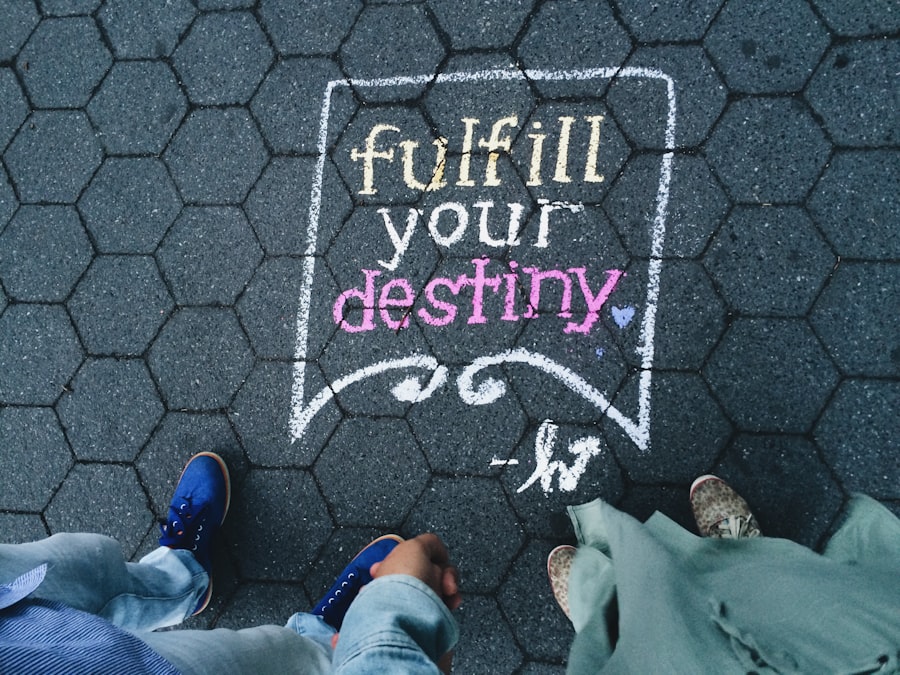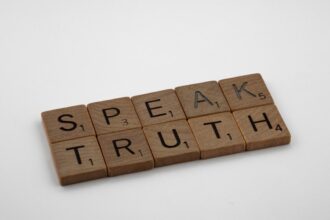In today’s fast-paced world, the significance of sustainable relationships cannot be overstated. You may find that the connections you cultivate with others—be it friends, family, or romantic partners—play a crucial role in your overall well-being. Sustainable relationships are those that endure the test of time, characterized by mutual respect, understanding, and support.
They provide a sense of belonging and security, which is essential for emotional health. When you invest in these relationships, you create a network of support that can help you navigate life’s challenges more effectively. Moreover, sustainable relationships contribute to your personal growth.
They encourage you to be your best self while also allowing you to embrace your vulnerabilities. In a world where superficial connections are often the norm, nurturing deep, meaningful relationships can lead to greater happiness and fulfillment. You may find that these connections not only enrich your life but also inspire you to pursue your passions and dreams.
Key Takeaways
- Sustainable relationships are important for overall well-being and happiness.
- Healthy relationships require understanding dynamics, effective communication, trust, and mutual respect.
- Communication is the foundation of sustainable relationships and is essential for resolving conflicts and nurturing emotional intimacy.
- Building trust and mutual respect is crucial for the longevity of a relationship.
- Cultivating empathy, fostering equality, and supporting each other’s growth are key elements in sustaining sustainable relationships.
Understanding the Dynamics of Healthy Relationships
To foster sustainable relationships, it is essential to understand the dynamics that characterize healthy interactions. You might notice that healthy relationships are built on a foundation of trust and open communication. Each party feels safe expressing their thoughts and feelings without fear of judgment or retaliation.
This environment allows for vulnerability, which is crucial for deepening emotional connections. Recognizing these dynamics can help you identify what works in your relationships and what may need improvement. Additionally, healthy relationships require a balance of give and take.
You may find that both parties need to contribute equally to maintain harmony and satisfaction. This balance fosters a sense of partnership, where both individuals feel valued and appreciated. Understanding these dynamics can empower you to take proactive steps in nurturing your relationships, ensuring they remain strong and sustainable over time.
Communication as the Foundation of Sustainable Relationships

Effective communication is the cornerstone of any sustainable relationship. You may have experienced moments where misunderstandings arose simply due to a lack of clear communication. When you prioritize open dialogue, you create an environment where both parties feel heard and understood.
This not only strengthens your bond but also minimizes the potential for conflict. Engaging in active listening—where you genuinely focus on what the other person is saying—can significantly enhance your communication skills. Moreover, expressing your thoughts and feelings honestly is vital for maintaining transparency in your relationships.
You might find that sharing your emotions fosters deeper connections and encourages others to do the same. When both parties feel comfortable discussing their needs and desires, it paves the way for a more fulfilling relationship. By honing your communication skills, you lay the groundwork for a sustainable partnership that can weather life’s ups and downs.
Building Trust and Mutual Respect
| Metrics | Data |
|---|---|
| Trust level | High |
| Respectful communication | 90% |
| Team collaboration | 95% |
| Feedback effectiveness | 80% |
Trust is an essential element in any sustainable relationship. You may realize that without trust, it becomes challenging to foster a deep connection with someone. Building trust takes time and requires consistent actions that demonstrate reliability and integrity.
When you keep your promises and show up for others, you reinforce their belief in your commitment to the relationship. This mutual trust creates a safe space where both individuals can thrive. Equally important is mutual respect.
You should feel valued for who you are, just as you should value others for their unique qualities. Respecting each other’s boundaries, opinions, and feelings is crucial for maintaining harmony in your relationships. When both parties feel respected, it cultivates an atmosphere of appreciation and understanding.
By prioritizing trust and mutual respect, you create a solid foundation upon which sustainable relationships can flourish.
Nurturing Emotional Intimacy
Emotional intimacy is a vital component of sustainable relationships that often gets overlooked. You may find that sharing your innermost thoughts and feelings with someone creates a profound bond that transcends surface-level interactions. Nurturing this intimacy requires vulnerability and openness; it involves allowing yourself to be seen in your entirety—flaws and all.
When you share your fears, dreams, and insecurities with someone, it invites them to do the same. To foster emotional intimacy, consider engaging in activities that promote connection. You might enjoy spending quality time together, whether through deep conversations or shared experiences.
These moments allow you to explore each other’s inner worlds and strengthen your bond. As emotional intimacy grows, so does the resilience of your relationship; it becomes a safe haven where both parties can express themselves freely without fear of judgment.
Resolving Conflict and Navigating Differences

Conflict is an inevitable part of any relationship, but how you navigate these challenges can determine the sustainability of your connection. You may find that addressing conflicts head-on rather than avoiding them leads to healthier outcomes. When disagreements arise, approach them with a mindset focused on resolution rather than winning an argument.
This shift in perspective can help you engage in constructive dialogue that fosters understanding. It’s also essential to recognize that differences are natural in any relationship. You might have different values, beliefs, or preferences than your partner or friend, but these differences can enrich your connection if approached with an open mind.
Embracing diversity allows you to learn from one another and grow together. By developing effective conflict resolution skills and embracing differences, you can strengthen your relationship’s foundation and ensure its sustainability.
Cultivating Empathy and Compassion
Empathy and compassion are powerful tools for nurturing sustainable relationships. You may find that when you practice empathy—putting yourself in someone else’s shoes—you deepen your understanding of their experiences and emotions. This understanding fosters compassion, allowing you to respond with kindness and support during challenging times.
Cultivating these qualities not only enhances your relationships but also contributes to your personal growth. To develop empathy, consider actively listening to others without interrupting or judging their feelings. You might also engage in conversations that encourage vulnerability, allowing both parties to share their experiences openly.
By fostering an empathetic environment, you create a safe space where individuals feel valued and understood. This mutual compassion strengthens your bond and reinforces the sustainability of your relationship.
Fostering Equality and Partnership
Sustainable relationships thrive on equality and partnership. You may recognize that when both individuals feel equally valued and empowered, the relationship flourishes. This balance allows for shared decision-making and collaboration in various aspects of life—be it personal goals or daily responsibilities.
Fostering equality means acknowledging each other’s strengths and contributions while working together toward common objectives. In practice, this could involve discussing household responsibilities or making joint decisions about finances or future plans. You might find that when both parties actively participate in shaping the relationship’s direction, it fosters a sense of ownership and commitment.
By prioritizing equality and partnership, you create a dynamic where both individuals feel invested in the relationship’s success.
Supporting Each Other’s Growth and Development
A sustainable relationship should encourage personal growth for both individuals involved. You may find that when you support each other’s aspirations—whether they are career-related or personal goals—it strengthens your bond significantly. Encouraging one another to pursue passions fosters an environment where both parties feel empowered to reach their full potential.
Consider engaging in conversations about each other’s dreams and ambitions regularly. You might also explore ways to collaborate on projects or interests that align with both of your goals. By actively supporting each other’s growth, you create a partnership rooted in encouragement and motivation, which ultimately enhances the sustainability of your relationship.
Creating Shared Values and Goals
Shared values and goals serve as guiding principles in any sustainable relationship. You may find that when both individuals align on fundamental beliefs—such as family values, lifestyle choices, or long-term aspirations—it creates a strong sense of unity. Establishing these shared values helps navigate challenges more effectively since both parties are working toward common objectives.
To create shared values, consider engaging in open discussions about what matters most to each of you. You might explore topics such as family dynamics, career aspirations, or lifestyle preferences to identify common ground. By establishing shared values and goals, you lay the groundwork for a relationship built on mutual understanding and purpose.
Sustaining and Nurturing Sustainable Relationships
Sustaining a relationship requires ongoing effort and commitment from both parties involved. You may find that regularly checking in with each other about feelings, needs, and aspirations helps maintain connection over time. This proactive approach ensures that any potential issues are addressed before they escalate into larger conflicts.
Additionally, nurturing your relationship involves celebrating milestones together—whether big or small—and expressing gratitude for one another regularly. You might consider planning date nights or engaging in activities that bring joy to both parties as a way to keep the spark alive. By prioritizing these efforts, you create an environment where sustainable relationships can thrive long into the future.
In conclusion, sustainable relationships are essential for personal well-being and growth. By understanding their dynamics, prioritizing communication, building trust, nurturing emotional intimacy, resolving conflicts effectively, cultivating empathy, fostering equality, supporting each other’s growth, creating shared values, and committing to ongoing nurturing efforts, you can establish deep connections that stand the test of time. Embrace these principles as you navigate your relationships; they will serve as invaluable tools for creating lasting bonds filled with love, respect, and mutual support.
The purpose beyond peace often delves into the deeper understanding of human psychology and the pursuit of inner tranquility, which is not merely the absence of conflict but the presence of a profound sense of well-being and fulfillment.
This article discusses the psychological aspects of achieving peace and how it relates to personal growth and self-awareness. For a more comprehensive understanding, you can read the full article by visiting Unplugged Psychology.
FAQs
What is the purpose beyond peace?
The purpose beyond peace refers to the idea that achieving peace is not the ultimate goal, but rather a means to an end. It involves creating a society that is just, equitable, and sustainable for all its members.
Why is the purpose beyond peace important?
The purpose beyond peace is important because it emphasizes the need for addressing underlying issues such as social justice, economic inequality, and environmental sustainability, which are essential for maintaining long-term peace and stability.
How does the purpose beyond peace differ from traditional peacebuilding?
Traditional peacebuilding focuses on ending violent conflicts and establishing ceasefires, while the purpose beyond peace goes further to address the root causes of conflicts and work towards creating a more inclusive and equitable society.
What are some examples of initiatives that embody the purpose beyond peace?
Initiatives that embody the purpose beyond peace include efforts to promote human rights, reduce poverty, address climate change, and promote social inclusion and equality.
How can individuals contribute to the purpose beyond peace?
Individuals can contribute to the purpose beyond peace by supporting organizations and initiatives that work towards social justice, environmental sustainability, and economic equality. They can also advocate for policies that promote peace and address underlying social issues.




